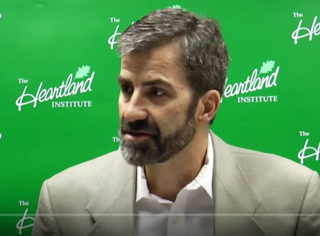A Quote by Alex Berenson
The lower spreads mean lower costs for investors, because Nasdaq investors generally do not trade directly with one another. Instead, they usually buy and sell from market-makers, brokerage firms that flip shares between buyers and sellers and keep the spread for themselves.
Related Quotes
If you expect to be a net saver during the next 5 years, should you hope for a higher or lower stock market during that period? Many investors get this one wrong. Even though they are going to be net buyers of stocks for many years to come, they are elated when stock prices rise and depressed when they fall. This reaction makes no sense. Only those who will be sellers of equities in the near future should be happy at seeing stocks rise. Prospective purchasers should much prefer sinking prices.
The benefits of a modest warming would outweigh the costs - by $8.4 billion a year in 1990 dollars by the year 2060, according to Robert Mendelsohn at Yale University - thanks to longer growing seasons, more wood fiber production, lower construction costs, lower mortality rates, and lower rates of morbidity (illness).
A pin lies in wait for every bubble. And when the two eventually meet, a new wave of investors learns some very old lessons: First, many in Wall Street (a community in which quality control is not prized) will sell investors anything they will buy. Second, speculation is most dangerous when it looks easiest.































